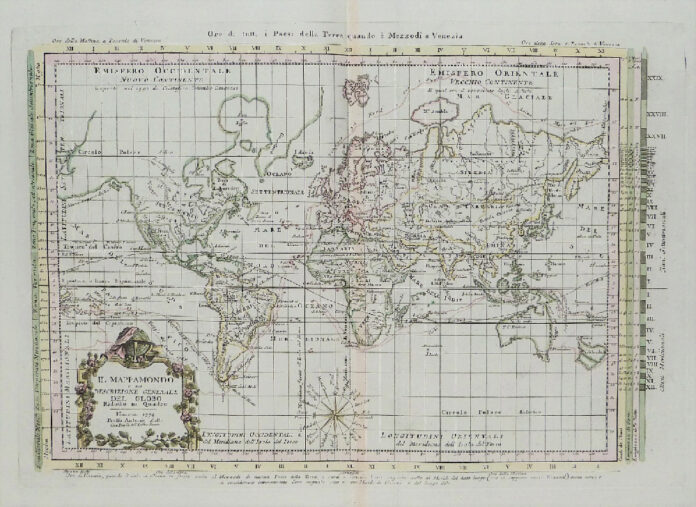The world order requires an “ordering” state and Biden proposes the United States to play this role. However, will the new order be peaceful or armed?
Ambassador Sergio Romano has the merit of having clearly stated the turning point in American foreign policy in relation to Europe. In stark contrast to the previous administration, Joe Biden has repeatedly declared that he wants his country to reclaim the role of free world champion that it has historically always had. Therefore, no more Trumpian-type isolationism nor bilateral agreements which lack geopolitical context.
In short, without saying it, the US president wants to give back to his country its regulatory role the in international affairs under the NATO. It is about recovering credibility and power. However, while credibility is available in the market to an infinite extent, every slice of power that is acquired is taken away from others. In this case, from whom?
It is clear that the power will be taken from the European Union, whose most ambitious and long-lasting project would be to become militarily autonomous and operate without the NATO, or at least have the same strength the US has in it. Biden’s “restoration” certainly can guarantee a certain security to the Old Continent and discourage Russia’s backfire on Eastern Europe.
However, do the US interests always match those of the EU? No. For example, what interest do Europeans have in daily condemning the violation of civil rights in China? And does the US do it for ideal reasons or to justify its moral superiority, and the defense of its economic interests? Is China the only country in the world where human rights are violated? What should we do about Recep Tayyip Erdogan in Turkey – which is part of NATO – or Jair Bolsonaro in Brazil, just to name two allies of the free world?
What kind of sense do the US sanctions against Russia (which even hit German companies) have from the point of view of economic relations in a globalized world? Or is it about hitting Moscow by hindering the energy supplies of gas and oil coming from the East? Answering is easy. The price of oil falls and the ruble goes under water. It is pure and simple political struggle.
Moral condemnations are allowed and the spread of a political culture that is respectful of people too. However, if we pretend to support such condemnations with economic measures, which incidentally affect the peoples and not the leaders, then we have the right to suspect that the issues of international law are being used instrumentally. It would not be the first time, but we would like to see some truth regarding international relations. Donald Trump‘s populism was detestable. But is there only that kind of populism?
Biden, I diritti umani, la UE
L’ordine mondiale richiede uno Stato “ordinatore” e Biden ripropone gli Stati Uniti nel rivestire questo ruolo. Ma il nuovo ordine sarà pacifico o armato?
Spetta all’ambasciatore Sergio Romano il merito di avere posto in termini chiari la svolta nella politica estera americana in rapporto all’Europa. In netto contrasto con la precedente amministrazione il Presidente Usa ha più volte dichiarato di voler far recuperare al suo Paese quel ruolo di campione del mondo libero che storicamente ha sempre avuto.
Dunque nessun isolazionismo di tipo trumpiano e niente accordi bilaterali che non tengano conto del contesto geopolitico. Insomma, pur senza dirlo, Joe Biden vuole restituire agli Usa quel ruolo arbitrale nelle questioni internazionali sotto la foglia di fico della Nato. Si tratta di recuperare credibilità e potere. Ma mentre la credibilità è disponibile sul mercato in misura infinita, ogni fetta di potere che si acquisisce viene tolta ad altri. In questo caso a chi?
È evidente che sarà tolta all’Unione Europea, il cui progetto più ambizioso e di lunga durata sarebbe quello di rendersi autonoma militarmente e fare a meno della Nato. O almeno integrarsi con essa con pari forza rispetto agli Usa. La «restaurazione» di Biden certamente può garantire una certa sicurezza al Vecchio Continente e scoraggiare ritorni di fiamma della Russia sull’Europa Orientale.
Ma gli interessi Usa corrispondono sempre a quelli dell’Unione? No. Ad esempio che interesse hanno gli europei a condannare quotidianamente la violazione dei diritti civili in Cina? E gli Usa lo fanno per ragioni ideali o per giustificare la propria superiorità morale, e la difesa dei propri interessi economici? La Cina è l’unico Paese al mondo in cui vengono violati i diritti umani? Che fanno Recep Tayyip Erdogan in Turchia – che fa parte della Nato – e Jair Bolsonaro in Brasile, giusto per citare due alleati del mondo libero.
Le sanzioni Usa contro la Russia che arrivano a colpire anche aziende tedesche hanno un senso dal punto di vista dei rapporti economici in un mondo globalizzato? Oppure si tratta di colpire Mosca ostacolando i rifornimenti energetici di gas e petrolio che giungono da Est? Facile rispondere. Il prezzo del petrolio scende e il rublo va sott’acqua. Si tratta di pura e semplice lotta politica.
Le condanne morali sono sacrosante e la diffusione di una cultura politica rispettosa delle persone anche. Ma se si pretende di sostenere tali condanne con provvedimenti economici che – detto fra parentesi – colpiscono i popoli e non i leader, allora si può sospettare che le questioni di legalità internazionale vengano usate strumentalmente. Non sarebbe la prima volta, ma ci augureremmo che si instaurasse la prassi di fare trapelare almeno un po’ di verità nelle relazioni internazionali. Il populismo di Donald Trump era detestabile. Ma esiste solo quel tipo di populismo?








